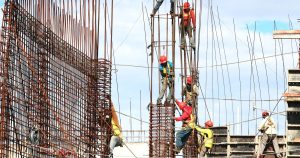Introduction
When it comes to construction projects, there is a crucial role that often goes unnoticed but plays a significant part in their success. Enter the Quantity Surveyor (QS), the unsung hero responsible for managing costs, ensuring efficiency, and maintaining project timelines. In this comprehensive guide, we will explore the ten key responsibilities of both the Client’s QS and the Contractor’s QS, shedding light on their vital roles in construction projects. So, let’s embark on this enlightening journey and unravel the mysteries behind the 10 duties of Quantity Surveyor.
| Duties of Client’s QS | Duties of Contractor’s QS |
|---|---|
| Cost planning and preparing feasibility studies | Cost planning for various Contractor activities |
| Prepare preliminary cost estimate prior to construction | Pricing Bills of Quantities |
| Advice on appropriate procurement strategies | Maintaining Project Progress database |
| Taking-off measurements & Prepare Bills of Quantities | Preparation of Monthly Payment Invoice(IPA) |
| Evaluate Tenders and Tender Negotiations | Administer conditions of contracts |
| Value Engineering services | Cash flow forecasting and monitoring |
| Monitoring project budget and cash flow | Dealing with subcontractor payments |
| Certification of payment invoices (IPC) | Assessment of variations |
| Lifecycle Costing | Preparation of final account and finalizing with Client QS |
| Technical Auditing & Taxation | Advising on economical procedures and contractual disputes |
10 Duties of Quantity Surveyor – Client’s QS

1. Cost Planning and Preparing Feasibility Studies
Before a construction project can commence, it is vital to determine its feasibility and associated costs. The Client’s QS plays a pivotal role in this process, conducting detailed cost planning and preparing feasibility studies. They assess the project’s objectives, analyze various design options, and provide valuable insights on cost implications. By conducting feasibility studies, the QS helps clients make informed decisions, ensuring projects align with their budgetary constraints and objectives.
Cost Planning is a systematic process conducted at the project’s inception to estimate the overall project cost limit and the expenditure pattern, including the cost of different elements and when they are expected to be incurred, such as substructure costs occurring early on and finishing costs at a later stage.
The purpose of conducting a feasibility study for a construction project is to aid project owners and prospective investors in assessing the likelihood of project success by determining the project’s potential, estimating the construction costs involved, and identifying the anticipated benefits the project can yield.
2. Prepare Preliminary Cost Estimate Prior to Construction
How do you ensure a construction project stays within budget from the very beginning? The Client’s QS has the answer. They prepare a preliminary cost estimate, taking into account factors such as design complexity, materials, labor, and project location. This estimate provides clients with a clear understanding of the expected costs, helping them allocate resources wisely and make adjustments if needed. It serves as a crucial foundation for effective cost management throughout the project lifecycle.
3. Advice on Appropriate Procurement Strategies
Selecting the right procurement strategy can significantly impact a project’s cost, quality, and delivery time. Here, the Client’s QS steps in, armed with their expertise and knowledge. They provide valuable advice on the most appropriate procurement strategy based on the project’s specific requirements, complexity, and risk tolerance. Whether it’s traditional procurement, design-build, or construction management, the QS helps clients navigate the procurement landscape, ensuring optimal outcomes.
4. Taking-off Measurements & Prepare Bills of Quantities
Imagine a chef meticulously measuring ingredients before creating a culinary masterpiece. Similarly, the Client’s QS employs their expertise to measure the quantities of materials required for the construction project. This process, known as taking-off measurements, involves quantifying items such as bricks, steel, cement, and more. These measurements serve as the foundation for preparing Bills of Quantities (BoQs), which provide detailed cost breakdowns for each construction element. Accurate BoQs facilitate precise cost estimation, tendering, and cost control throughout the project.
5. Evaluate Tenders and Tender Negotiations
Tenders are the lifeblood of construction projects. They allow clients to assess competing contractors’ proposals and select the one that best aligns with their project goals. The Client’s QS plays a crucial role in evaluating tenders, analyzing the submitted prices, and assessing each contractor’s qualifications and capabilities. Additionally, the QS facilitates tender negotiations, ensuring fair and transparent processes. Their expertise in cost analysis helps clients make informed decisions, selecting the contractor who offers the best value for money.
6. Value Engineering Services
In a world where maximizing value is essential, the Client’s QS brings the concept of value engineering to the forefront. Value engineering is a systematic approach that identifies opportunities to optimize costs without compromising quality. The QS collaborates with designers, contractors, and suppliers to explore alternative materials, construction techniques, and methodologies that offer cost savings. By embracing value engineering, clients can achieve a higher return on investment, improved project performance, and enhanced cost efficiency.
7. Monitoring Project Budget and Cash Flow
Construction projects are financial endeavors that require diligent monitoring of budgets and cash flow. The Client’s QS takes on this responsibility, keeping a close eye on project expenses, and ensuring they align with the approved budget. They monitor cash flow, anticipate financial requirements at different project stages, and recommend necessary adjustments to avoid financial bottlenecks. With their keen financial acumen, the QS ensures that the project’s financial health remains robust throughout its lifecycle.
8. Certification of Payment Invoices/Interim Payment Certification
When contractors submit payment invoices for work completed, the Client’s QS assumes the role of a financial detective. They scrutinize these invoices, verifying the accuracy of the work done, quantities, and associated costs. Once satisfied, they certify the payment invoices, signaling the client’s approval for payment. This meticulous process safeguards the client’s interests, ensuring that payments are made fairly and transparently, while also holding contractors accountable for their performance.
9. Lifecycle Costing
Construction projects have lifecycles that extend beyond their completion. The Client’s QS takes a holistic view, considering not only initial construction costs but also the long-term costs of operation, maintenance, and potential refurbishments. This approach, known as lifecycle costing, allows clients to evaluate the true value and cost implications of their investment decisions. By accounting for the entire project lifecycle, the QS enables clients to make informed choices that optimize both short-term and long-term financial outcomes.
Read More: Guide to Life Cycle Costing
10. Technical Auditing & Taxation
Construction projects often involve intricate financial transactions and complex tax regulations. The Client’s QS, armed with their financial expertise, takes on the role of a technical auditor. They ensure compliance with financial and taxation regulations, minimizing risks and ensuring the project operates within legal frameworks. By maintaining meticulous financial records and conducting regular audits, the QS provides clients with financial transparency and peace of mind.
Now that we have explored the crucial duties of the Client’s QS, let’s shift our focus to the responsibilities of the Contractor’s QS. Although their roles may differ, both QSs work collaboratively to achieve project success.
10 Duties of Quantity Surveyor – Contractor’s QS

1. Cost Planning for Various Contractor Activities
Just as a skilled conductor orchestrates a symphony, the Contractor’s QS harmonizes the financial aspects of various contractor activities. They meticulously plan and estimate costs for different project elements, considering materials, labor, equipment, and subcontractor expenses. By engaging in comprehensive cost planning, the QS ensures that each contractor activity aligns with the overall project budget, setting the stage for efficient financial management.
2. Pricing Bills of Quantities (BoQs)
Imagine the BoQs as a blueprint for financial control in a construction project. The Contractor’s QS takes on the responsibility of pricing these intricate documents and assigning accurate costs to each item within the BoQs. Through their expertise and industry knowledge, the QS ensures that the pricing is fair, transparent, and aligned with market rates. This meticulous pricing process establishes a solid foundation for cost control and effective financial decision-making throughout the project.
3. Maintaining Project Progress Database
In the fast-paced world of construction, staying on top of project progress is crucial for financial management. The Contractor’s QS assumes the role of a vigilant guardian, maintaining a comprehensive project progress database. This database tracks the completion status of various activities, providing real-time insights into project milestones and financial implications. By keeping a finger on the pulse of progress, the QS enables proactive decision-making, ensuring cost and schedule adherence.
4. Preparation of Monthly Payment Invoices/Interim Payment Applications
As construction projects progress, contractors rely on timely and accurate payment for their work. The Contractor’s QS shoulders the responsibility of preparing monthly payment invoices or interim payment applications. They diligently review completed work, verify quantities, and calculate the appropriate payment due. By ensuring precise invoicing, the QS helps maintain healthy cash flow for contractors, fostering strong relationships and trust among project stakeholders.
5. Administering Conditions of Contracts
Within the labyrinth of construction contracts lies a multitude of conditions, terms, and obligations. The Contractor’s QS serves as a guide, navigating the complexities and administering these conditions effectively. They meticulously review contractual obligations, manage variations, monitor compliance, and ensure that all parties fulfill their responsibilities. This diligent administration of contract conditions safeguards the contractor’s interests, minimizes disputes, and fosters a collaborative environment.
6. Cash Flow Forecasting and Monitoring
Cash flow, the lifeblood of any business, is no different in the construction realm. The Contractor’s QS embraces the role of a financial clairvoyant, forecasting and monitoring cash flow with meticulous precision. They assess income, expenses, and payment schedules, ensuring that the contractor’s financial obligations can be met. By maintaining a healthy cash flow, the QS enables contractors to navigate financial hurdles, seize opportunities, and maintain stability throughout the project.
7. Dealing with Subcontractor Payments
In the intricate web of construction projects, subcontractors play a vital role, and their timely payments are crucial for project success. The Contractor’s QS takes charge of managing subcontractor payments, ensuring accurate and timely settlements. They review subcontractor invoices, validate work completed, and facilitate fair payment negotiations. By effectively managing subcontractor payments, the QS strengthens relationships, fosters trust, and enhances collaboration within the project ecosystem.
8. Assessment of Variations
In the dynamic landscape of construction projects, changes are inevitable. The Contractor’s QS takes on the role of a financial detective, assessing and managing variations. They diligently evaluate change requests, analyze cost implications, and negotiate fair adjustments to the contract price. By carefully assessing variations, the QS ensures that changes are executed within a controlled financial framework, minimizing disruptions and protecting the contractor’s financial interests.
9. Preparation of Final Account and Finalizing with Client QS
The grand finale of a construction project is marked by the preparation of the final account—the culmination of financial records, payments, and contractual obligations. The Contractor’s QS assumes the role of a meticulous accountant, preparing the final account with precision and attention to detail. They reconcile all financial transactions, verify payments, and collaborate with the Client’s QS to finalize the account. This thorough process brings financial clarity, concluding the project on a strong financial footing.
10. Advising on Economical Procedures and Contractual Disputes
Within the realm of construction projects, economic procedures and contractual disputes often arise, threatening financial stability. The Contractor’s QS acts as a trusted advisor, offering valuable insights and guidance. They provide expert advice on cost-saving measures, explore alternative procurement strategies, and contribute to the resolution of contractual disputes. By offering their financial expertise, the QS helps contractors navigate complex situations, protect their interests, and maintain financial equilibrium.
Conclusion
Quantity Surveyors are the unsung heroes of construction projects, the masters of financial efficiency and cost management. From the inception of a project to its final stages, their duties ensure that budgets are respected, risks are mitigated, and clients’ objectives are achieved. The collaboration between the Client’s QS and the Contractor’s QS creates a harmonious symphony, with effective communication and coordination as the conductor. By embracing their responsibilities, Quantity Surveyors enable construction projects to flourish, delivering outstanding results within the realms of financial prudence and excellence.






